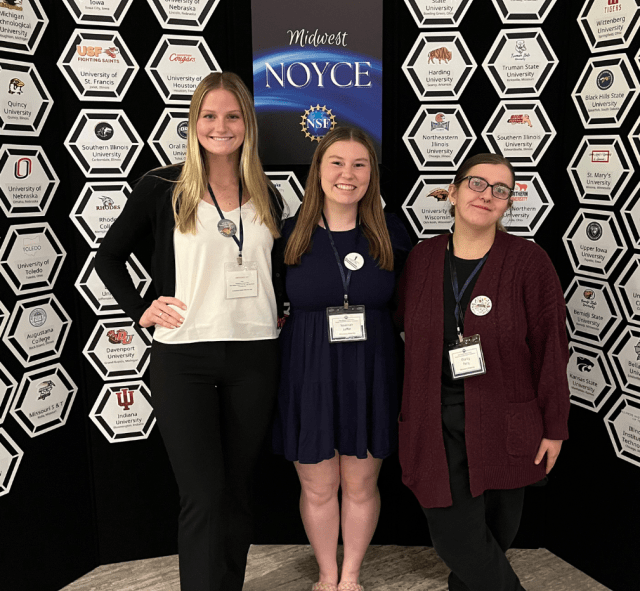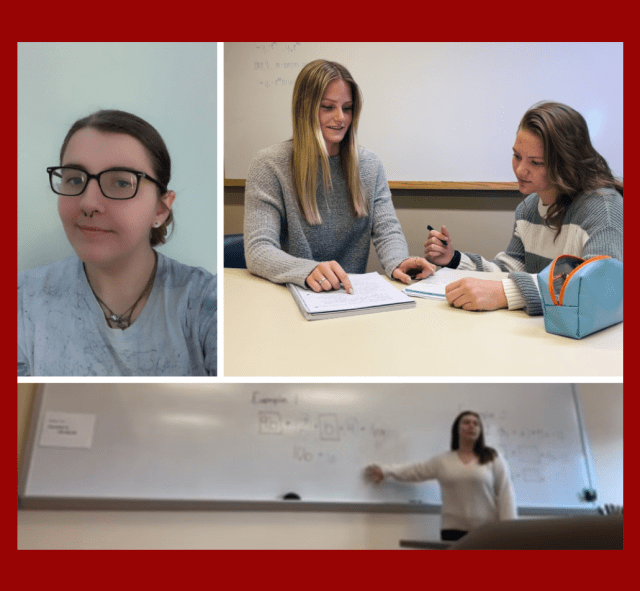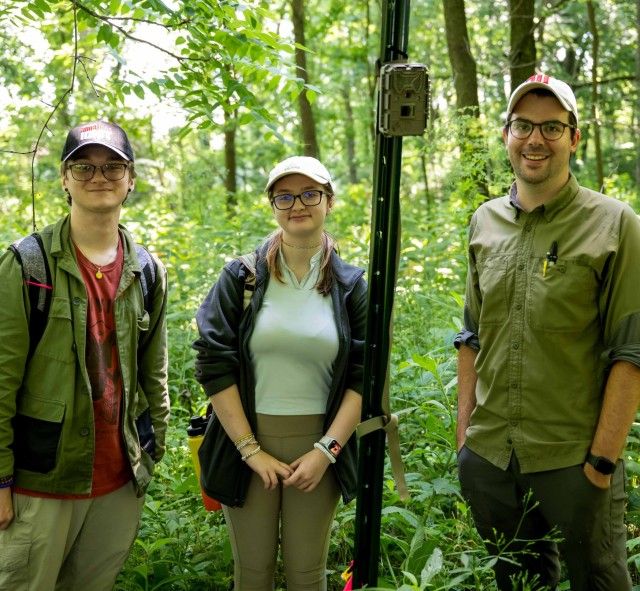What does long-haul COVID (or long COVID) have to do with Postural Orthostatic Tachycardia Syndrome (POTS)? What’s the quality of life for people living with chronic invisible illnesses like (POTS), and how might long COVID and POTS be related?
Elizabeth E. Powelson Professor of Biology Cathy Pederson will answer those questions and more when she addresses the Ohio Academy of Science as the keynote speaker during its annual meeting April 9 at the University of Findlay in Findlay, Ohio. She will serve on a panel discussion from 10 to 11 a.m. prior to her address around 1 p.m.
Since 2016, Pederson has published 14 articles, one book chapter, and given several professional talks on the quality of life for people living with chronic invisible illnesses like postural POTS, chronic fatigue syndrome/myalgic encephalomyelitis (CFS/ME), and Ehlers-Danlos Syndrome (EDS).
“Most of this work is assessing suicide risk in this population and trying to identify risk factors to suicide, which are different from the general population. In the past year or so, there has been more discussion of POTS as many people with COVID develop long COVID after the post-acute phase of the virus,” said Pederson, founder of Standing Up to POTS (SUTP), a 501(c)(3) organization, which awarded a $100,000 grant last year to top POTS researchers in Australia to study long COVID. Pederson’s daughter became ill with POTS in 2012, beginning a journey into illness and the healthcare system few experience in life.
“The ongoing symptoms of long COVID mimic those seen in POTS, CFS/ME, and mast cell activation syndrome. Current research shows that 40 percent of POTS cases arise after an infection, and COVID is the latest and likely largest contributor with the sheer number of new POTS cases worldwide post-infection,” she added. “The silver lining of the pandemic for the POTS community is that so many people are developing POTS simultaneously with the same etiology – this is a unique opportunity to study this disorder at a large scale and learn how POTS develops in previously healthy individuals.”
The Ohio Academy of Science annual meeting is a full day of scientific discussion and presentation given by college students and science professionals from across Ohio. Pederson’s keynote address is titled Related Illness? Postural Orthostatic Tachycardia Syndrome (POTS) and Long COVID. She will also be part of a panel discussion on Women in STEM: Empowering the Future.
“I am honored to present the academy’s keynote address and serve on its Women in STEM panel,” Pederson said. “Many years ago, I took students annually to the Ohio Academy of Science. This invitation came as a result of a keynote address I presented to the American Junior Academy of Science last year (virtual in Seattle, Washington).”
Pederson, Wittenberg class of 1991, is in a unique position as a neurobiologist to use her scientific knowledge to help push the chronic illness community forward. She wants to help families like hers navigate the struggles of this invisible illness with necessary support and innovative research.
SUTP has grown in the past year with a new website and The POTScast, increasing the organization’s social media presence. Pederson was also recently interviewed by News 5 in Cleveland, Ohio, and by NPR to discuss POTS in the context of long COVID.
“I think that POTS is getting more attention since it is a part of the long-haul syndrome related to COVID,” Pederson said. “My role in these interviews is more related to my advocacy through Standing Up to POTS than the articles that I have published. It's been pretty crazy. My guess is that they are finding me due to our new website and our podcast that we launched last June.”
The POTScast, on which Pederson is a regular presenter, already has 82,000+ listeners from 85 countries and was created by two members of the SUTP board of directors.
“We started a podcast with very little experience between us. Early on, I recorded many of the episodes as we worked to attract practitioners and patients to share their knowledge and experiences with our listeners,” Pederson said. “It has really taken off, and we have top experts in their field coming onto the show to share their wisdom with our listeners. Currently we release six episodes a month, and I am the guest approximately once a month. I also serve as the editor-in-chief for all episodes of The POTScast.”
Pederson has collaborated with many Wittenberg faculty in different departments over the years and several have been guests on The POTScast.
“In the past several years, I have published papers with Dr. Jeff Brookings in psychology, Dr. Brian Yontz in education, and Dr. Brooke Wagner in sociology,” Pederson said. “The statistical analysis required for much of the work that I do with large samples of POTS patients requires special statistical expertise. I worked with Dr. Jeff Brookings for several years, and together we published a new suicide screening tool, which we developed specifically for people with these chronic invisible illnesses, and a number of other papers together. His retirement from research (several years after his retirement from Wittenberg) was a blow because he was the best research collaborator that I had ever worked with. I was looking for another statistician and was lucky enough to find Dr. Brooke Wagner. She also has a child with a chronic illness and was interested in joining me on this journey into studying chronic invisible illness.”
In less than a year, Pederson and Wagner published one paper, created an episode of The POTScast talking about the work, and currently have another manuscript in development. They have also submitted to present at the 15thAnnual Meeting of the International Association for Chronic Fatigue Syndrome/Myalgic Encephalomyelitis this summer.







